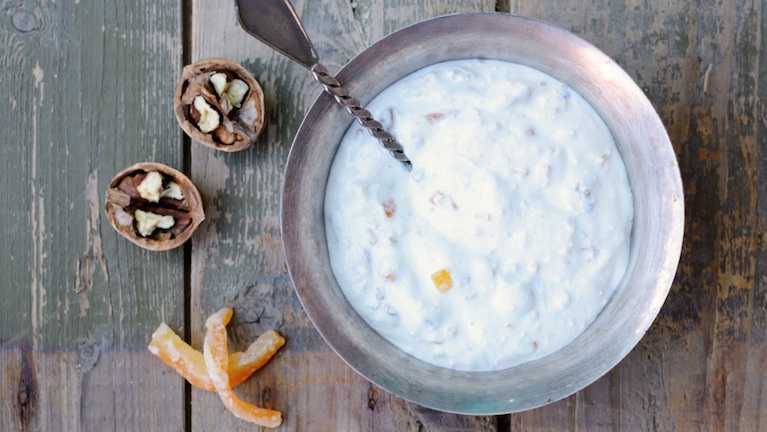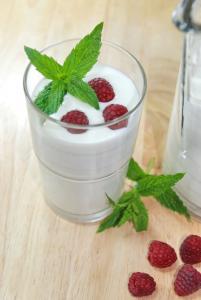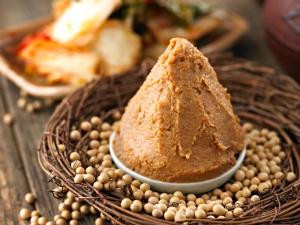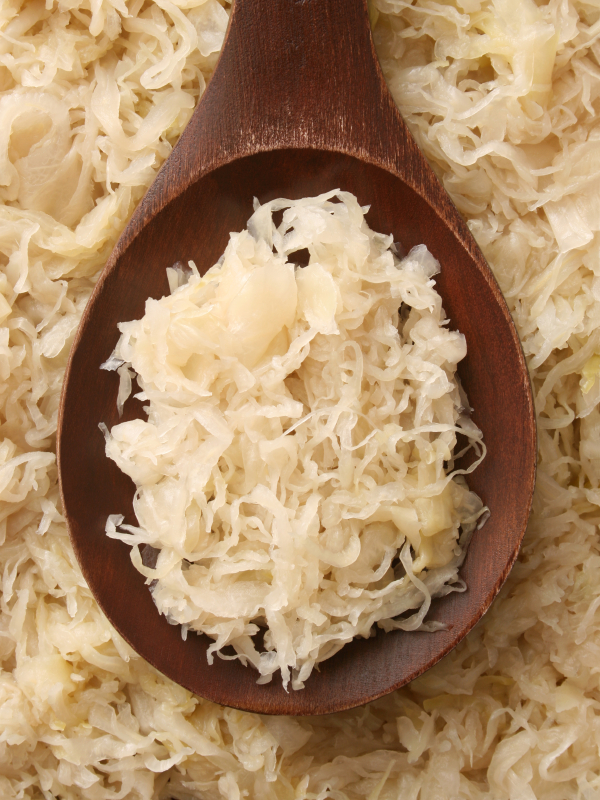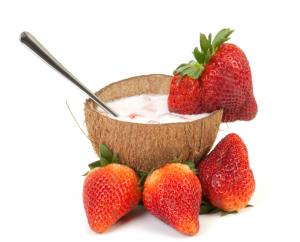Fermented foods are anything but new, but are they the key to better health? This army of experts seems to think so. Editor Anna Magee reports
13 years ago Donna Schwenk was 41 and pregnant with her third child. She developed preeclampsia and as her liver began to shut down. The baby, Holli, had to be delivered by C-section almost seven and a half weeks early, weighing just four pounds. Swenk herself developed diabetes, high blood pressure and severe fatigue. She could barely get off the sofa let alone care for her newborn. ‘I started looking around for answers because my baby was so tiny and I had to get better to help her thrive and grow,’ she remembers.
Schwenk started drinking the kefir too and within 12 weeks her blood sugar and blood pressure had returned to normal
Browsing in a health food store, she came across a book called Body Ecology by Donna Gates (Hay House; Revised edition £10.73) and opened to a page about kefir, a fermented milk drink high in bacteria. ‘A shop assistant walked passed and said, ‘That is the most important book you will ever need.’ Desperate, Schwenk read up on kefir and its high bacteria content and started adding two teaspoons to Holli’s bottles. Within a month, the baby had gained four pounds. Schwenk started drinking the kefir too and within 12 weeks her blood sugar and blood pressure had returned to normal and she was ‘feeling joy and wellness for the first time in years.’
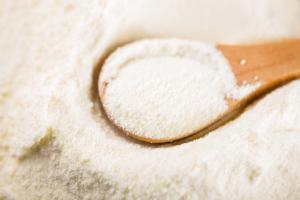
Holli’s bottles a day. Within a month, the
baby had gained four pounds
She could barely get off the sofa let alone care for her newborn
Schwenk, who went on to write Cultured Foods For Life (Hay House £13.48) is convinced her own and her baby’s transformations were thanks to the impact that fermented foods high in bacteria such as kefir have on our guts. We’re not talking only improving digestion but immunity, weight metabolism and even mood, according to emerging research. Based in the US, Schwenk is part of an hour long PBS Special called Health Breakthroughs looking at current research into what eating more fermented foods like kefir, yoghurt and fermented vegetables such as sauerkraut and soy beans can do for health. She’s not alone in her evangelism. The New York Times recently named fermented foods one of the big food trends for the future. In a forward to the bestselling book The Art of Fermented Foods by Sandor Katz (Chelsea Green £19.71), healthy eating advocate Michael Pollan, writes of his own newfound passion for DIY food fermentation: ‘Katz’s book is the main reason that my kitchen counters and basement floor have lately sprouted an assortment of mason jars, ceramic crocks, jelly jars, bottles, and carboys, the clear ones glowing with unearthly colors.’ Meanwhile, Kimberly Snyder, an LA nutritionist with clients such as Drew Barrymore, Hilary Duff and Dita Von Teese recommends her clients eat fermented vegetables every day. She says: ‘Raw, cultured vegetables are among the most important foods of our modern day. As the inner balance of good bacteria is restored in your body, you’ll be better able to shed excess weight. Your skin will improve. Your energy will become more vibrant.’
MORE: 6 Health trends your body needs this month
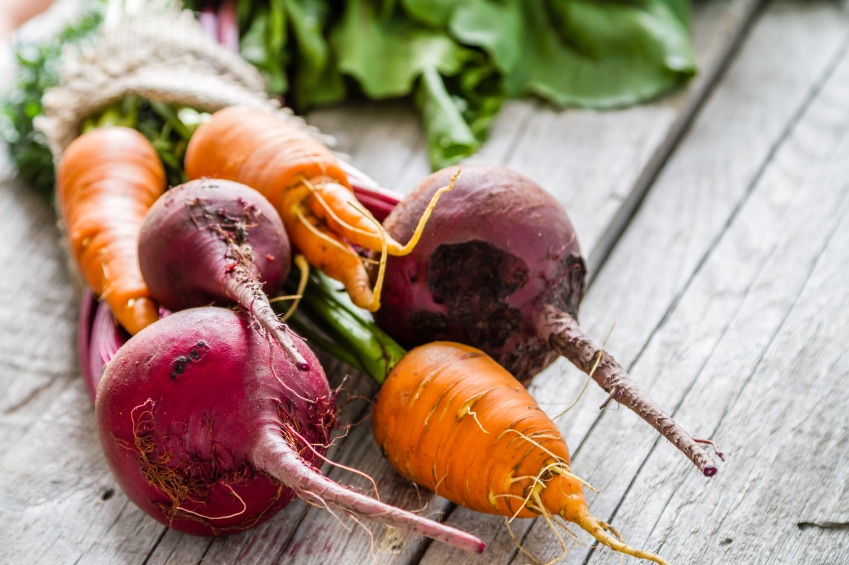
The gastric tract is the highway to health
Increasing research is pinpointing the gut as the focal point for health. ‘The gastric tract is the highway to health,’ says Kathie Swift, a clinical nutritionist book The Swift Diet: 4 weeks to mend the belly, lose the weight and fix the bloat (Plume Books £10.45). In her clinics in the US, Swift sees people with rheumatic conditions, auto-immune diseases, mood problems, infertility, migraines and weight they can’t shift. ‘I will always start with gut health because the balance of bacteria affect not only our digestion but our absorption of vitamins from food,’ says Swift. ‘If this isn’t working, problems can manifest in any part of the body.’ Indeed, in recent studies, scientists have replaced the gut bacteria of obese mice with that of lean mice and found the mice lost weight. Gut bacteria is also essential to other bodily functions too. ’Not only is 70 per cent of our immune system located there but our guts are also home to the enteric nervous system – some call it the second brain – where we produce chemicals such as serotonin essential to mood,’ Swift explains. In a paper published in January this year in the Journal of Physiology and Anthroplogy researchers explained how emerging research was linking the traditional dietary practice of fermenting foods to positive mental health. Another rodent experiment at McMaster University in Canada replaced the gut bacteria of anxious mice with bacteria from more fearless mice and they calmed down and became less anxious.
MORE: 12 ways to beat the bloat
bacteria imbalance could manifest as anything from food intolerances to chronic fatigue, auto-immune diseases and even skin disorders
There are some 100 trillion bacteria living in your gut – both good and bad. As we age we have a higher proportion of bad bacteria in our guts because our stomach acid – essential for the growth of good bacteria – decreases. Your gut should be around 85 per cent good bacteria and 15 per cent bad, but this balance is influenced by diets high in sugar and caffeine, stress, antibiotic courses (some taken when you were a child as some bacteria strains stick around for years!) and other medications such as long-term steroids. ‘This can lead to an imbalance of the friendly bacteria and allow more pathogenic of bad bacteria to to populate the guts,’ says Daniel O’Shaunessy, a registered nutritional therapist (thenakednutritionist.co.uk). ‘Bad bacteria compete for space in the intestines and feed off refined carbohydrates and sugar, which is why so many people’s guts are currently such a mess, though it could take years for them to see symptoms’. When they do, O’Shaunnessy explains that bacteria imbalance could manifest as anything from food intolerances to chronic fatigue, auto-immune diseases and even skin disorders like eczema and psoriasis. ‘We start to repopulate the gut with good bacteria and often see symptoms alleviated.’
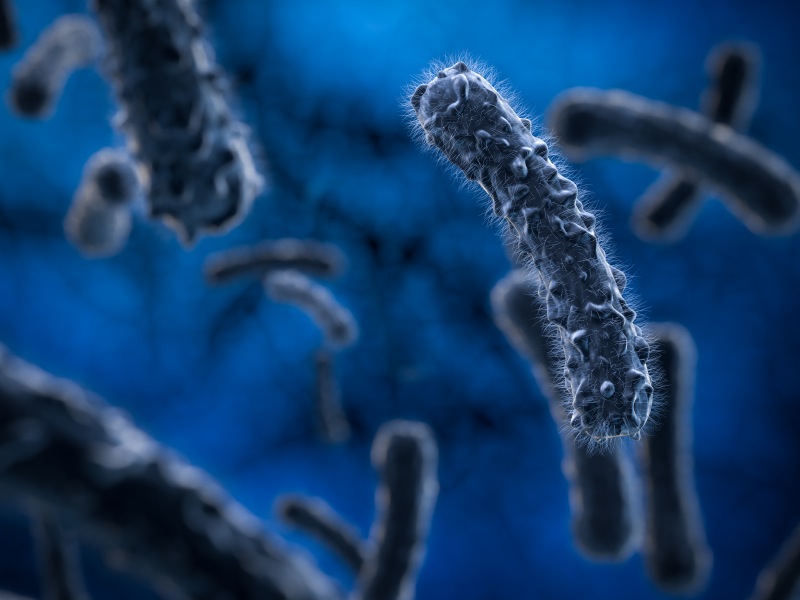
But why the fashion suddenly for fermented foods? Why not just down one of those drinks off supermarket shelves which claim to contain good bacteria? ‘Those drinks are not only high in sugar, they also contain transient bacteria which won’t set up camp and replicate in the gut, which is what you want,’ says O’Shaunessy. ‘Eating a wide variety of fermented foods means you will be getting a wide variety of different strains and families of good bacteria needed for good health.’ Kefir for example contains a different bacteria to sauerkraut which contains a different bacteria to the fermented tea drink kombucha (see panel). There’s no way to know who needs which strain, so in an ideal world you would be having a mix of different fermented foods in your daily diet, says O’Shaunessy.
a scientist involved in making probiotic capsules once told me they are usually derived from human poo
But why not just take a pill? ‘A probiotic pill may contain billions of bacteria where something like one tablespoon of sauerkraut will contains trillions,’ he explains, adding that some probiotic pills have been shown to contain ‘bad’ bacteria. Furthermore, it’s useful for you to know if you’re thinking of taking one, a scientist involved in making probiotic capsules once told me they are usually derived from human poo.
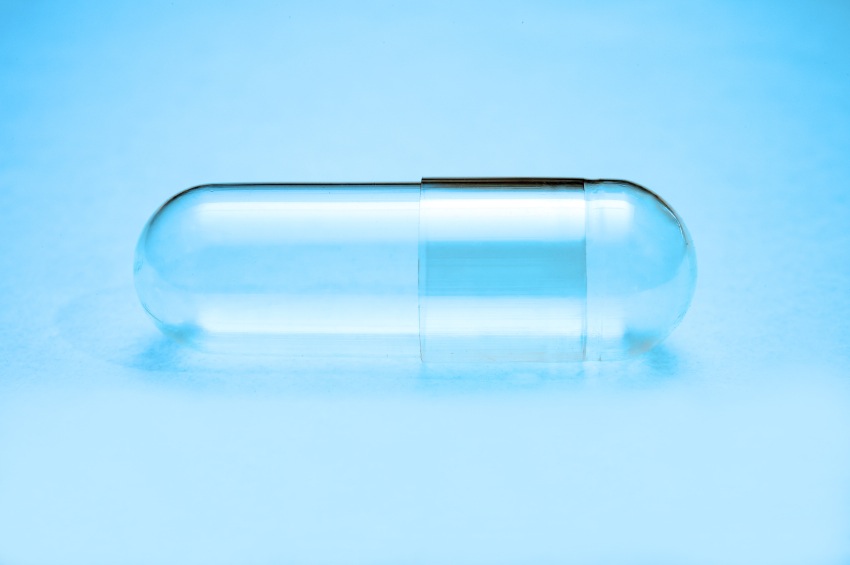
Though fashionable now, fermenting foods is anything but new. ’Fermentation has been a part of traditional diets in every culture around the world for a very, very long time,’ says Jill Ciciarelli, author of Fermented: A four season approach to paleo probiotic foods (Victory Belt £40.83). Paleo or caveman eating, which focuses on eating only foods available to our ancient ancestors favours adding fermented foods to the diet because before there was refrigeration, fermenting was the only way to preserve produce. ‘But the new fashion for fermentation is also because fermenting foods makes their nutrients more available to our bodies,’ says Ciciarelli. Traditional use of fermented foods was also because eating them was believed to help with digestion because of their high natural acid content.
fermenting foods makes their nutrients more available to our bodies
From Korea’s fermented vegetable dish Kimchi, to Germany’s sauerkraut and France’s choucroute (their version of fermented cabbage) fermented foods play a role in many ethnic cuisines. Indeed, in Japan life expectancy is the second highest in the world (after Monaco) and this is thought to be because fermented foods (along with green tea and fish) feature highly on the menu. ‘The Japanese have miso soup as well as natto, a breakfast or starter dish made from fermented soy beans as well as many fermented vegetable dishes,’ says O’Shaunnessy. Other fermented foods from Japan include amikaze, a naturally sweet food made with fermented grains (delicious).
MORE: Is fermenting the new juicing
It’s common to get a healing crisis when you start eating fermented foods that can cause abdominal pain, diarrhoea and gas
But before you start dousing your lunchtime salad in sauerkraut, Jill Ciciarelli has a word of warning: ‘More is not better when it comes to fermented foods. The key is variety and moderation.’ Some kefir or yoghurt with your breakfast, a cup of miso soup or kombucha tea plus another small serve – half to one cup – of sauerkraut or fermented vegetables is all anyone needs, she explains. Anymore and you might experience an upset stomach. Indeed, most practitioners recommend everyone start slow with fermented foods. ‘It’s common to get a healing crisis when you start eating fermented foods that can cause abdominal pain, diarrhoea and gas,’ says ‘OShaunessy. ‘When you start putting the probiotics in, you can start something of a war between the good and bad bacteria who will at first be fighting each other to colonise your gut. As bad bacteria die, they produce a gas so this reaction is normal,’ he says. ‘Start with as little as a tablespoon of the water from sauerkraut and then gradually build up your intake to small amounts of different fermented foods a few times a day.’
4 tips for getting in on the fermentation trend
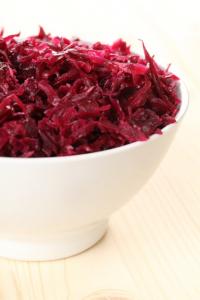
Look for raw, live cultures on the label. If it’s on the long-life shelf it’s been pasteurised and heat-treated and won’t contain live cultures. Recent EU legislation has banned terms such as ‘probiotic’, ‘live’ or ‘active’ on labels. But do look for a raw product, usually found in bags or jars in the refrigerated section of health food stories.
Don’t be scared to DIY. It’s easy to make your own fermented vegetables using a jar and some salt (see below) and just about any vegetable or fruit can be fermented (lemons and limes fermented are delicious). All of the books mentioned here contain great recipes.
Start small. Start with a small amount of a type of fermented food that appeals to you, then add others over time. Including a variety of foods will ensure your gut flora gets a wide selection of bacteria strains needed for a healthy gut.
Feed the flora. While fermented foods are probiotics that encourage good bacteria to grow in your stomach, these need foods known as prebiotics that encourage the bacteria to grow. They include onions, garlic, artichokes, oats, barley, chickpeas, lentils and bananas. Avoid too much sugar too – it feeds the bad bacteria.
5 best fermented foods
KEFIR A fermented milk drink that can be made by buying a ‘starter culture’ from health food stores, adding it to dairy, coconut or soy milk and leaving covered at room temperature for 24 hours. Rhythm are a new coconut kefir ‘one shot’ drink with nothing added. Lifeway Frozen Kefir comes in delicious fruit flavours and is better than ice-cream with a fraction of the calories. It’s 99 per cent fat free and lactose-free (fermentation dramatically lactose).
MISO A soy bean paste that comes in brown or white varieties depending on the type of fermented soy bean it’s made from. It can be bought as a paste from health food stores (use a teaspoon in a mug of hot water to make a quick broth or add it to soups as a stock). We like Clearspring’s organic sweet white or brown rice moss pastes. It can also be bought as instant sachets or in cups from Pret and Itsu.
SAUERKRAUT Make your own by adding sea salt to chopped cabbage (or any chopped vegetables) and massaging until it sweats (about ten minutes) then packing the whole mixture with the brine tightly into an airtight container and leaving in a warm dark place for four days. Then refrigerate it. If you want to buy it, we think Organic and Raw Sparkling White Cabbage from Laurie’s Tummy Loving Foods along with Rick’s Picks Smokra pickled okra with smoked paprika are delicious.
COCONUT YOGHURT If yoghurt doesn’t agree with you, coconut yoghurt is a good source of healthy bacteria. It’s easy to make by heating coconut milk to 97 degrees then dropping it down to 46 degrees and then opening up a probiotic capsule and throwing the contents into it with a healthy thickener such as agar-agar flakes (a tasteless seaweed), covering and leaving on the worktop for a couple of days. If that’s too much faff, try Coyo coconut milk yoghurt.
KOMBUCHA TEA You can buy kits on the net to make it but it’s a faff. The fermented tea is available as a sparkling drink from health food stores – be prepared for an acquired taste, a bit like cheap wine. We like Go! Kombucha Fermented Raw Tea and Ucha Kombucha Raw Sparkling Tea in Pomegranate.
All foods mentioned above are available from Whole Foods.
Anna Magee is the editor of healthista.com
Like this article? Sign up to our newsletter to get more articles like this delivered straight to your inbox.



